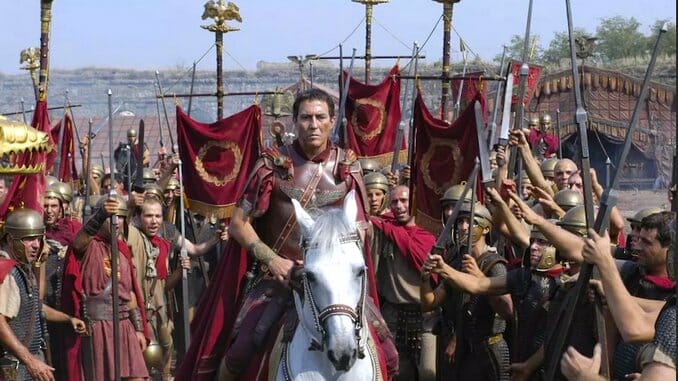TV Rewind: All Hail Rome, HBO’s Lavish Period Drama That Changed Television Forever
Photo Courtesy of HBO
Editor’s Note: Welcome to our TV Rewind column! The Paste writers are diving into the streaming catalogue to discuss some of our favorite classic series as well as great shows we’re watching for the first time. Come relive your TV past with us, or discover what should be your next binge watch below:
![]()
Too often, when people think of period dramas they immediately think of Regency or Edwardian-era costume pieces like Pride and Prejudice or Downton Abbey, stories about marriage matches and inheritance politics that present a sanitized version of life in a particular time period. Tudor-era pieces allow us to protest the murderous patriarchy that ground down six remarkable women in the name of a horrible man’s pride, and everyone loves the hardscrabble charm of Dickens’ London, where everyone is poor until they magically aren’t.
HBO’s Rome is very much not that kind of period drama. Incredibly violent yet remarkably fun to watch, it is a show that embraces the bloodiest, most decadent aspects of the time in which it is set, using ordinary avatars and realistic dirt and grime to tell a legendary story in the most human of terms. It is not your typical period drama, but, then again, it was never really meant to be.
-

-

-

-

-

-

-

-

-

-

-

-

-

-

-

-

-

-

-

-

-

-

-

-

-

-

-

-

-

-

-

-

-

-

-

-

-

-

-

-








































